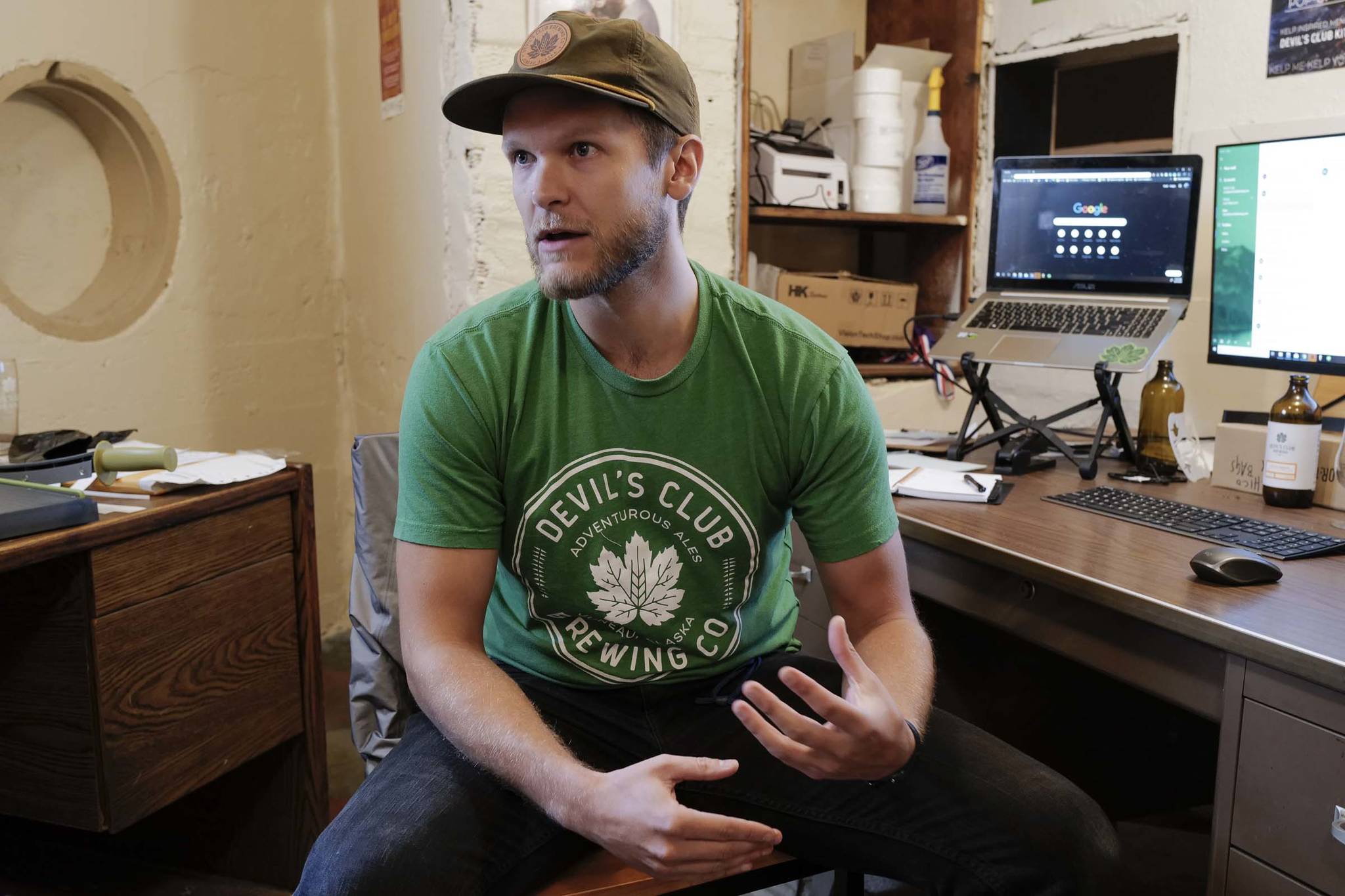Juneau’s breweries and distillery can continue to host fundraisers and First Friday events after the Alcoholic Beverage Control Board unanimously decided not to adopt a regulation definition.
The definition was nearly unanimously panned during its public comment period, which saw more than 1,200 comments from Alaskans. It would have defined “other recreational or gaming opportunities” — which are banned at breweries, distilleries and wineries by state law — as festivals, games and competitions, classes, public parties, presentations or performances and other social gatherings advertised to the general public.
“I’m very happy with the decision of the board to not adopt,” said Evan Wood, one of Devil’s Club Brewing Company’s owners, who said he was listening in on the meeting held Tuesday in Anchorage. “It’s a relief.”
The motion to not adopt the regulations passed unanimously.
Alcohol & Marijuana Control Board Director Erika McConnell asked the board during the meeting if that means the matter is closed, and Board Chair Bob Klein said it is. She also asked if in effect, that means AMCO staff should ignore the “other recreational activities” portion of regulations.
Klein said for now, yes, but egregious matters should be brought to the board.
The vote on the failed definition change had drawn public attention for months since it was announced in late August.
[That’s too far’: Alcohol manufactures have gripe with proposed restriction]
The matter drew the ire of local alcohol manufacturers, including Devil’s Club, Amalga Distillery and Barnaby Brewing Company, but it did have support from some local bar owners. Support for the definition change from bar and liquor store owners often framed the issue as a need to rein in businesses with manufacturing licenses, rather than beverage dispensary licenses, that were exploiting vague wording for profit in a way that wasn’t intended. Part of that objection is tied to the price discrepancy between the two types of licenses.
Manufacturing licenses come with a biennial fee of $1,000, according to the AMCO website, and beverage dispensary licenses come with a fee of $2,500. There are $500 new application fees for alcohol licenses. But, getting a beverage dispensary license in Juneau comes with a price tag that far exceeds application and licensing fees since all of Juneau’s beverage dispensary licenses are spoken for.
State statute puts a population-linked limit on the number of licenses by type that communities can have — in Juneau, that’s 11 beverage dispensary licenses.
There are 20 such licensees in Juneau because businesses were grandfathered in when the regulations were adopted in the 1980s, said City and Borough of Juneau City Clerk Beth McEwen.
“That’s why they’re such hot commodities,” McEwen said.
Those sorts of licenses can sell for hundreds of thousands of dollars on the private market. In comparison, there are seven openings for brewery licenses, according to AMCO’s website.
Those concerns were raised in a public comment filed by Juneauite Mark Erickson.
“Distilleries and breweries were meant to be tasting rooms, without bar stools at the bar, comfortable seating, music, entertainment, etc.,” he wrote. “Unfortunately, they have been bending these rules in their favor, and no one is doing anything about it. I suggest that if you want to run your distillery or brewery like a bar, you should purchase a Beverage Dispensary License at market price, if one is available. In Juneau the minimum starting price is $250,000+.”
Title IV prohibits owners of wholesale businesses, breweries, wineries, bottling works or distilleries from being issued a beverage dispensary license.
‘Blown away’ by overwhelming support
The overwhelming majority of public comment collected by the Alcohol and Marijuana Control Offices showed opinions skewed heavily against the new definition.
Klein said he was “blown away” by how many public comments were submitted, as well as the source of some of the comments.
“The number of municipalities, the number of organizations, the number of chambers of commerce wrote us resolutions indicating the industry has been not only accepted, but it has been embraced by governments and those involved in business as an asset,” Klein said. “There were only four letters in that entire 1,270 that spoke in favor of these regulations.”
[New restrictions widely panned in public comments]
Board member Sara Erickson also took note of the near-uniform opposition to the definition change.
“I’m very open to changes in Title IV and offering less restrictions,” Erickson said. “I believe the public really wants this. The public has made it very clear what they want.”
Wood said he was humbled by the way communities rallied around breweries.
“I’m at a loss for words in terms of the outpouring of support that was shown,” Wood said.
While the vote was unanimous, it was clear board sentiment wasn’t entirely in lockstep.
Board member Glenn Brady said while he wasn’t in favor of the definition being considered by the board, it does seem like some change is needed.
While Brady said he is no fan of over-regulation, “alcohol is not like other commodities.”
“There are in fact public health implications to retail alcohol and what we’re describing in these restrictions is not manufacturing, it is retailing,” Brady said. “I’m not in favor of the proposed modifications to the regulations, but I would urge all the constituents to pay attention and remain open minded and stay at the table and have discussions because there certainly will be changes coming. If not in this session, then in future sessions.”
Brady said he was unsure what specific changes would be best.
“Certainly what was proposed isn’t it,” he said. “I still feel like the reason we’re struggling with this is because what we have in front of us, what’s currently on the books, isn’t quite right either.”
• Contact reporter Ben Hohenstatt at (907)523-2243 or bhohenstatt@juneauempire.com. Follow him on Twitter at @BenHohenstatt.

